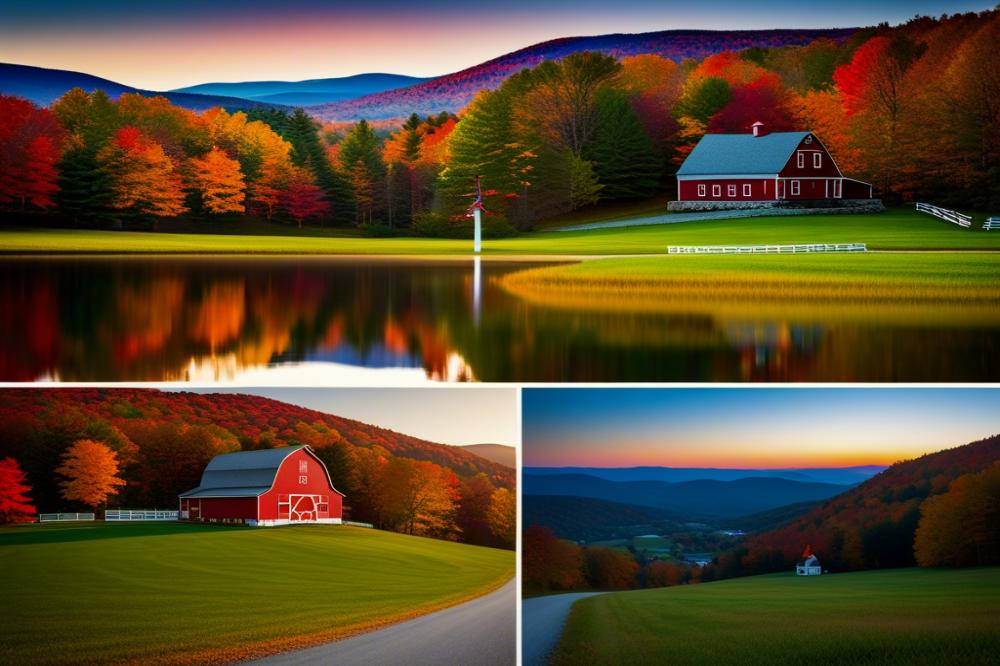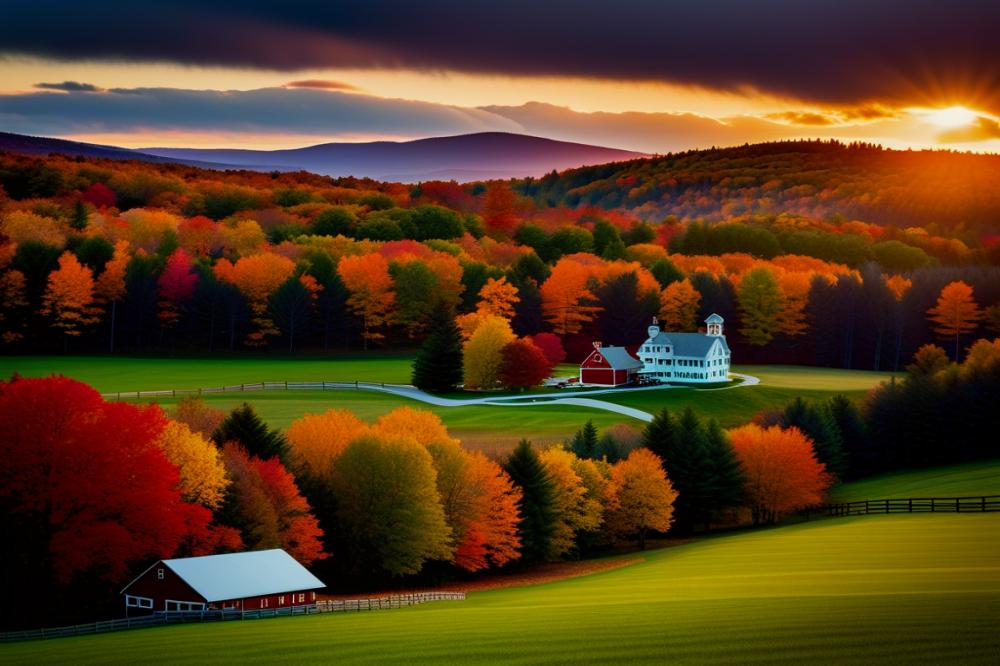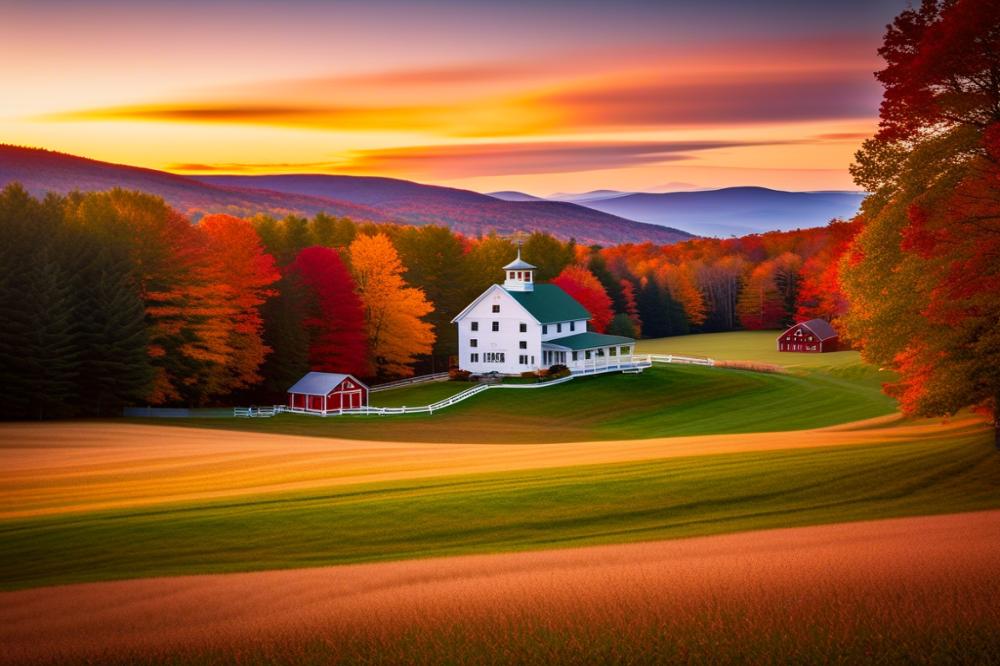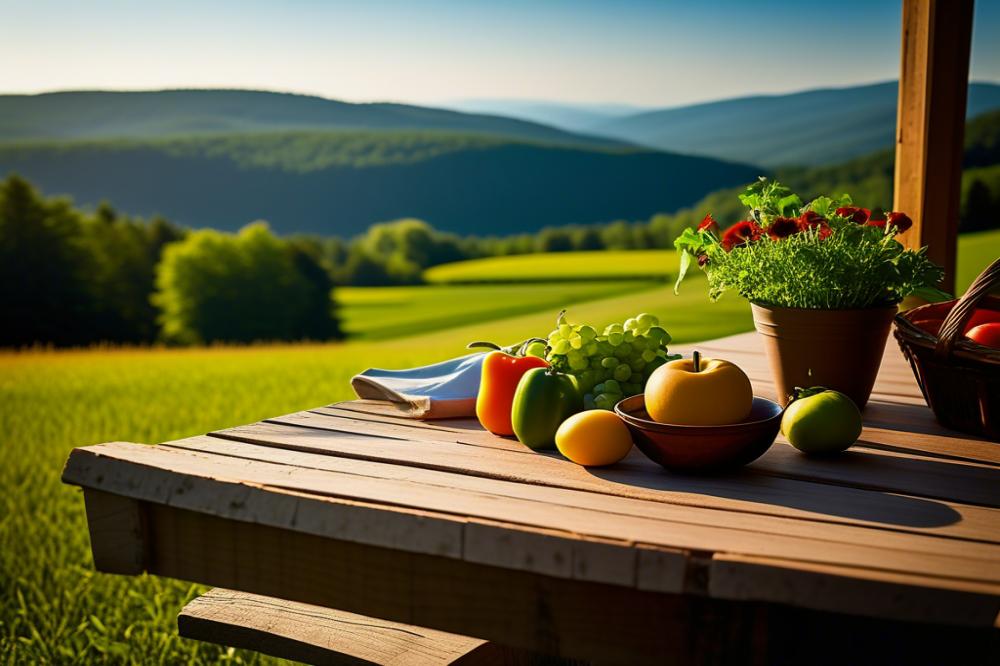Introduction
The cooking-in-napa-valley-california”>Farm-to-Fork movement emphasizes connecting people with the origins of their food. Its goal is straightforward: to cultivate a deeper appreciation for what we eat by sourcing ingredients closer to home. This approach has become increasingly important as individuals seek healthier, more sustainable options. Enjoying local food not only supports farmers but also strengthens the community.
Vermont stands out in the realm of sustainable agriculture. The state is home to numerous organic farms that prioritize eco-friendly practices. Farmers often cultivate seasonal ingredients, enhancing the flavor of the dishes they produce. In this landscape, chefs play a critical role by curating dining experiences that highlight fresh, local produce. Farm tours and culinary events allow visitors to engage directly with the sources of their meals.
Year-round, Vermont hosts a variety of food festivals that showcase these local flavors. Such events provide opportunities for everyone to experience the state’s rich culinary offerings. By participating, you can meet dedicated farmers and talented chefs who define Vermont’s vibrant food scene. Together, they create memorable moments that celebrate the uniqueness of local ingredients and sustainable practices.
The connection between Vermont’s agricultural heritage and its culinary landscape is deep and rewarding. As you explore this beautiful state, consider the significance of what’s on your plate. Embracing these cooking-in-napa-valley-california”>Farm-to-Fork Culinary Experiences can make a difference in how we think about food. The more we support local and sustainable choices, the more vibrant our communities will become.
The Essence of Farm-to-Fork in Vermont


Farm-to-fork refers to the journey food takes from local farms directly to your dining table. This movement emphasizes fresh, seasonal ingredients while supporting local food producers. In Vermont, this concept is deeply embedded in the culture of the state.
The commitment to sustainable agriculture is strong in Vermont. Farmers in this region prioritize practices that protect the environment and preserve the landscape. They grow crops without synthetic pesticides and work to maintain healthy soil. This dedication fosters a community that values high-quality produce and responsible farming.
Local food producers play a vital role in this system. Small family-owned farms provide fresh vegetables, fruits, and grains to community restaurants and markets. Chefs appreciate working with nearby farms as they develop menus that reflect the seasons. Their dishes highlight the flavors of what is harvested during different times of the year.
Organic farms contribute significantly to Vermont’s food culture. Many of these farms are certified organic, avoiding harmful chemicals. They grow a variety of crops that are not only good for people but good for the planet. Visitors can take part in farm tours to learn about these sustainable practices firsthand.
Culinary events and food festivals showcase the hard work of these local farmers. Events like these celebrate the harvest and bring communities together. They offer attendees a chance to taste delicious meals made from regional ingredients. Diners can enjoy recipes crafted by talented chefs who embrace the farm-to-fork philosophy.
Seasonal ingredients shine during Vermont’s food festivals. Each season brings new crops, and chefs create menus based on what is available at that time. This connection to the land creates memorable dining experiences. Whether indulging in summer berries or hearty winter root vegetables, each bite tells a story.
The dedication to local food in Vermont creates a rich tapestry of culinary flavor. It reflects a broader movement toward sustainability. Eating at local restaurants or attending food festivals allows diners to appreciate the effort that goes into every meal. This connection between farms and kitchens enriches our understanding of food.
Exploring Vermont’s Organic Farms


Vermont is renowned for its diverse agricultural landscape. Many farms here focus on organic practices. Visitors can find dairy farms, vegetable farms, and small-scale fruit orchards. Each type of farm offers seasonal ingredients that bring local food to life. From vibrant tomatoes in summer to hearty root vegetables in fall, the flavors truly reflect the state’s palette.
Farm tours allow guests to immerse themselves in daily farm life. Stepping onto a farm, you can interact with the animals and speak directly with farmers. They share stories about their experiences and the challenges of sustainable agriculture. These connections deepen your appreciation for how your food is grown. Observing nature up close enhances the visiting experience, making it memorable and insightful.
Learning about sustainable farming practices is crucial. Farmers often explain how they make choices that benefit the environment. You might hear about crop rotation, composting, or natural pest control methods. These techniques show a commitment to preserving the land for future generations. Understanding these principles enriches culinary events and food festivals across the state.
Many local chefs are passionate about using fresh, seasonal ingredients. They partner with organic farms to create delicious dishes that highlight Vermont’s bounty. Dining experiences become hybrids of flavors that showcase what the land provides. When you taste a meal prepared with ingredients sourced that very morning, you can sense the freshness. This connection between farm and table contributes to a deeper relationship with food.
Culinary Events and Food Festivals


Vermont is well known for its exciting food festivals. These events celebrate local ingredients and the skill of talented chefs. The state shines with seasonal culinary events throughout the year. Attending these gatherings allows visitors to taste dishes made from fresh, local food.
One of the most beloved festivals in Vermont is the Brattleboro Winter Farmers’ Market. This event brings together organic farms from around the region. Visitors can purchase fresh produce while enjoying delicious food prepared by local chefs. The market showcases a variety of seasonal ingredients, making it a great place to learn about Vermont’s agricultural offerings.
Another noteworthy event is the Vermont Cheesemakers Festival. This festival highlights the state’s rich cheese-making tradition. Guests can sample cheeses from various local producers and pair them with wines from nearby vineyards. It’s a unique chance to connect with chefs dedicated to promoting sustainable agriculture.
Hands-on cooking experiences are also a hit at many culinary events. Participants can join workshops led by local chefs. These sessions often focus on how to create dishes using seasonal ingredients. Whether it’s learning to make artisan bread or preparing a gourmet meal, visitors engage directly with the local food scene.
Farm tours are sometimes included in these Culinary Experiences. Many local farms invite guests to see where their food is grown. This provides insight into how sustainable practices benefit the environment. Gaining this understanding can make dining experiences even more enjoyable.
From vibrant food festivals to interactive cooking classes, Vermont’s culinary events are worth attending. Chef-led demonstrations offer tips and inspiration that can enrich anyone’s cooking skills. Discovering the flavors of Vermont not only satisfies the palate but also supports the local community and economy.
Dining Experiences Celebrating Farm-to-Fork


Overview of Farm-to-Fork Restaurants in Vermont
Vermont is home to many restaurants that focus on local food. These establishments pride themselves on using ingredients sourced from nearby farms. Freshness is key in these dining experiences. It’s common to see menus that change with each season, allowing diners to taste what is currently being harvested. Restaurants often highlight the names of farms where their ingredients come from. This creates a connection between the diner and local agriculture.
Unique Dining Experiences Featuring Local Ingredients
Enjoying a meal in Vermont can be an adventure. Some restaurants offer special events that include culinary tours and wine tastings. Many chefs collaborate with local farmers to create special dishes. These meals tell a story about the land and the seasons. Travelers can even participate in farm tours that highlight how ingredients are grown and harvested. Seasonal ingredients create vibrant and tasty plates. Food festivals throughout the year celebrate these local flavors, drawing crowds eager for a taste of Vermont.
Profiles of Chefs Dedicated to the Farm-to-Fork Philosophy
Several chefs in Vermont stand out for their commitment to sustainable agriculture. One such chef is dedicated to using only organic farms for their ingredients. This dedication goes beyond simply preparing food. Each dish is crafted with care, aiming to honor its origins. Many chefs build relationships with farmers, ensuring transparency and community support. Another chef emphasizes the importance of seasonal cooking, allowing their creativity to shine with each change of the seasons. Diners appreciate the effort these chefs put into their craft. It makes every meal an opportunity to savor the best that Vermont has to offer.
Planning a Cooking Holiday in Vermont
Choosing Accommodations and Travel Tips
Finding the right place to stay can enhance your cooking holiday. Look for cozy inns or charming bed-and-breakfasts that embrace local food culture. Many accommodations partner with nearby farms. This means you can wake up to fresh, seasonal ingredients. Additionally, consider locations close to farmer markets or food festivals. These events showcase the best of Vermont’s sustainable agriculture. Getting around is simple if you rent a car. Explore the scenic roads and connected communities. Always check with your hosts for the best dining experiences in town.
Participating in Cooking Classes and Workshops
Engaging in cooking classes can elevate your culinary skills. Vermont offers various workshops led by talented chefs. These sessions often focus on seasonal ingredients from nearby organic farms. You might learn techniques on how to prepare local dishes. Hands-on experience can be both fun and educational. Sign up for a class that interests you. Many workshops also incorporate farm tours, giving you insight into the farm-to-table process. Participants often leave feeling inspired and more connected to their food.
Creating a Personalized Itinerary Filled with Farm-to-Fork Experiences
Designing an itinerary can be the most exciting part of your journey. Start by listing activities that pique your interest. Include culinary events, like festivals or tastings, alongside workshops. Explore visits to local farms and cheese makers. These experiences not only provide delicious samples but also knowledge about sustainability. Plan a mix of formal and informal dining experiences to enjoy. You can try a fancy meal one night and a casual food truck the next. Balance is key! Always make time to relax and soak in the beauty of Vermont. The landscape alone is worth the trip. This personalized journey promises delicious memories and deeper appreciation for local food.
Final Thoughts on Vermont’s Culinary Journey
Recapping the many delicious opportunities in Vermont reveals a vibrant tapestry of flavors. From farm visits to community-supported agriculture, there’s an adventure waiting for everyone. Eating local food opens doors to understanding farming and cooking in a deeper way. Each dish has a story, connected to the land and the people who work it.
Trying Vermont’s culinary delights should be on everyone’s to-do list. Savoring fresh produce and regional specialties creates an unforgettable experience. Farmers’ markets buzz with energy and excitement. People can engage with those who grow their food and taste what makes this state so special.
The impact of supporting local agriculture cannot be overstated. It benefits the environment, boosts the economy, and fosters community connections. Choosing to eat locally nurtures smaller farms and helps maintain Vermont’s beautiful landscapes. Each bite not only delights the palate but also builds a sustainable future.
Make it a point to explore what Vermont has to offer. Whether you’re enjoying a meal at a trendy restaurant or picking cherries at a farm, every experience contributes to a larger purpose. In conclusion, embracing the fresh flavors and ingredients fostered within the community is a rewarding and enriching experience.



